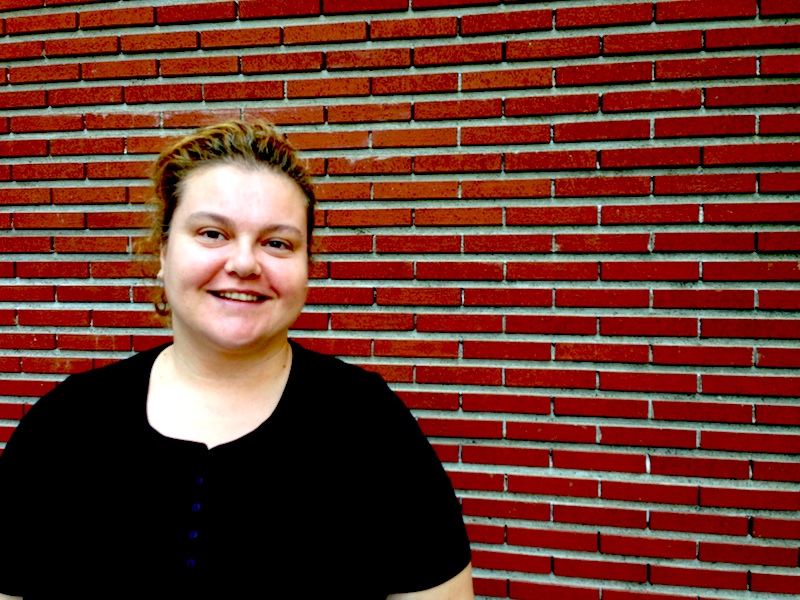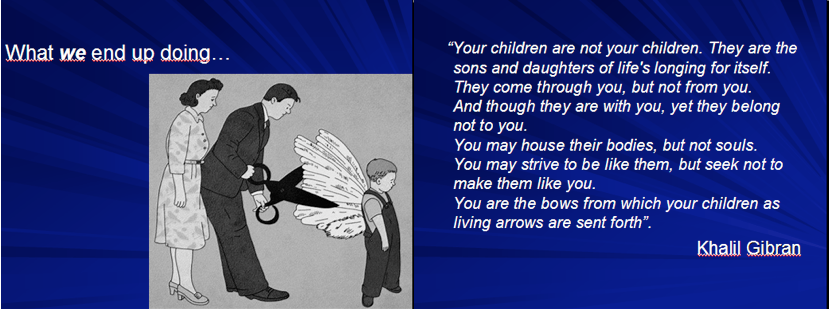 IATEFL 2013, Liverpool Review by Evrim Uysal
IATEFL 2013, Liverpool Review by Evrim Uysal
IATEFL 2013 has been a very rewarding experience for me. I had the opportunity to meet colleagues as well as publishers and trainers who work on the process of feedback provision on written work in academic settings, specifically peer-feedback, which was also the focus of my IATEFL 2013 session.
The following review includes only certain aspects of my IATEFL 2013 experience. For more, please feel free to talk to me, review the conference programme, look at the photos and visit the blogger reviews I liked.
Helping learners boost their confidence towards language learning by helping them explore “which fish they are” and by listening to Pink Floyd’s “Another Brick in the Wall” by heart as an educator in the city of Beatles, the city of music and fishermen, Liverpool…
One session I found really useful at IATEFL 2013 Liverpool, “Using the SELF as Source” was offered by one of my colleagues, Şila Yosulçay. This session was also my first time videotaping a whole IATEFL session. I really enjoyed the experience, which gave me the chance to observe how the audience interacts with the presentation content and the presenter. After ensuring that everyone in the room was positive about being video-taped, I picked 2 spots in the room which would not distract the audience or the presenter. The session started of at an upbeat pace and the audience started interacting with the content right from the start. The focus of the presentation was the research Şila had conducted, “What relationship is there between self-awareness and language learning”. Being one of the participants in the session, I felt the need to see what the presenter meant by “self awareness” and boom: it came as…
“Self Awareness is having a clear perception of your personality, including strengths, weaknesses, thoughts, beliefs, motivation, and emotions”.
&
“Self Awareness allows you to understand your SELF, your attitude and the real reasons behind your responses to people”.
Then the first question was introduced, "What metaphor or word/s would you use to describe where you are at in terms of your personal development/self awareness?" Please explain why.
The responses which made me think were as follows
1. I am just putting my feet into the endless sea.
2. A snow drop
3. A mine waiting to be discovered
4. Beginning of a long road
5. Being used to the tiny rocks that get into my shoes during a long race
6. Like a map of the road that we are on. It contributes to understanding how much distance we travelled, where we lost the right way, whether we have another exit or U turn on our way….
7. A rock waiting to be shaped
The presenter very cleverly guided the audience to see the common point among the learner responses. After getting some views from the audience, she pointed out that “the responses showed that self awareness is a kind of process and during this process, when we encounter threats to our individuality, we hide ourselves, which adds bricks to the wall”. Having said “bricks to the wall”, I would like to add that using “the wall” metaphor in the city of music, the city of the Beatles, Liverpool, and using certain parts of that song during the presentation was another clever detail of the session I appreciated.
Then the other research questions and the responses followed.
Question 2 was “Who or what contributes to your self awareness? (You can choose more than one option)”. The responses included “keeping diaries, reading books, student counselors, teachers, parents, peers and none of the above”.
Question 3 was “What do you believe interferes with you trying to explore your SELF, your full potential?".
One striking result directly related to Questions 2 and 3 was that learners included “parents and peers” as two of the major interfering factors. The presenter used this contradictory-looking data to link the content to a poetic but rather philosophical aspect, by saying “What is contradictory here when you compare this pie chart with the former data? Parents and peers contribute to our awareness but at the same time they somehow stand in our way to explore our own selves. As a result, they end up living somebody else’s dream and we educators complain about their motivation”. After this comment, the audience was left on their own for a couple of minutes with the following slides.

This poem by Khalil Gibran is one of my favorites and maybe this is why this part of the session impressed me the most. Both as an educator and a parent, it is part of my routine to be questioning about how much I own my class or my son and how reasonable my expectations are from the young people in my class and from my 6-year-old at home. Being very moved myself and watching the audience behind the camera being touched at heart, I continued enjoying this inspiring session and the enriching experience of video-taping the reactions people show as they sit there interacting with the poem silently, but maybe quite actively, rather loudly, but definitely full of thought and childhood memories: who knows?…☺
The presenter commented on the two slides by referring back to the Pink Floyd song, “Another Brick in the Wall” by saying “Remember the song, “We don’t need no thought control!! When we are children, we don’t have fears because we haven’t yet been taught that by our environment. However as we grow we learn to fear and even though it protects us to some extent, it also prevents us from being who we really are”. The rest of the session was more language learning focused which was marked with the introduction of Question 4 and 5 which were “Do you think there is a relationship between self awareness and learning English?” and “If yes, explain the relationship giving examples from your own experiences” respectively.
The session included samples from learner responses to the research questions which made it colorful and helped the audience to relate content to themselves as well as to their own learners. The audience naturally started answering most of the research questions on their own for their own “self or selves” which I could analyze from their body language as I was videotaping.
Question 9, “What does English taste like” and the responses to it were quite interesting and fun. Some responses were “Salad: a mixture of different variables”, “Credited course: I only think what is needed for my business life”, “Pepper: first hot but then you used to it”, “Water: You need it to live” and “Brocoli: it is good for health but doesn’t taste good”.
After some more questions and responses were viewed, the presenter provided a nice, practical self-awareness task which I thought I could use to get to know tutorials better, which is also how the presenter uses this task. The task was introduced with the following slides (“Which fish are you” task prepared by Deniz Kurtoğlu Eken).

Learners’ responses to the simple question of “Which fish are you?” were definitely the “food for thought” of the session and at that point many people from the audience started talking about integrating this task to their own teaching settings.
Here are some samples from learners’ responses.
Response Sample 1: “I think I am a gold fish. I am different from others. But actually this difference is not good for me. At the place where I come, people think being different is terrible. I am different because I think my life vision is totally different from others. When I try to explain my ideas, their lookings become strange so it makes me feel shy. I am a gold fish that lost in other blue fishes cause my ideas like foreign people to them”.
Response Sample 2: “I’m one of the blu fish who is furious to turn into golden one. In any subject of my life, I don’t like to be a regular member of society, realizing regular staff. I’d like to have extraordinary accomplishments that enables me to be unique”.
During the conclusion section of the session, the presenter mentioned the importance of improving learners’ metacognitive as well as cognitive skills, improving their communicative competence, boosting their self confidence, creating the right environment to help learners develop critical thinking skills and to become autonomous learners. One last recommendation kind of provided the gist of the session, which was “stop adding bricks to the wall but rather unload the psychological baggage of your learners”.
I think this session allowed me to question where I stand in terms of adding another brick in the wall as an educator and as a parent. It also encouraged me to reinterpret the book cover of Tony Humprey’s (“Whose Life Are You Living?”, please also see the slide above) and explore it as a getting-to-know-you tutorial material.
Also, I believe videotaping a whole session can act as an opportunity to learn from the audience. This is because as you are presenting you may not be following how the audience interacts with the content all the time. Watching the video as a follow-up to your session can be very useful.
Utilizing the communication channel preferences of the digital native learners to increase engagement…
One of the workshop formatted sessions I found quite useful was “Engaging The Digital Native: A form of Cross-Cultural Communication” offered by Jennie Toner, Bilgi University. In her session, Jennie focused on the fact that communicating with learners through their preferred channels is the key to engaging learners. The session also included samples of how one can ensure that the curriculum “communicates” with learners.
This session was useful because it included authentic examples from the classroom and it was based on the experiences and observations of the instructor. I also had the chance to talk to Jennie on some other areas she is interested in, one of which was my session focus: “training students on exchanging peer feedback to written work”. We agreed to meet in Istanbul and discuss ways of collaboration on our common research topic.
And for more on sessions I enjoyed, please feel free to visit my office and discuss the others, such as “English for Science-you can’t be a subject specialist” by Elizabeth Anne, Universite Joseph Fourier, Grenoble or “Mind the App! Simple Online Tools for the EFL Lesson” by Thomas Strasser, Vienna University of Teacher Education.
Networking as a refresher & rediscovery…
One nice aspect of conferences is networking. Meeting people from various cultural backgrounds is always enriching. For the first time this year, I spent more time visiting the ELT Resources Exhibitors Hall, which was also an additional opportunity to build my network.
I really enjoyed Pearson’s stand, which included no books at all! My colleagues Seda, Görkem, Şila, Suzan and I also had the chance to meet Ian Butler, the CEO of www.lingleonline.com, who introduced us the software which allows you create lesson plans from newspaper articles, quickly add exercises such as Gap-Fills, Word Match, glossaries and much more. I also enjoyed my stay in the littlebridge.com stand which allowed me to explore colorful, fun and effective games and stories to explore with learners at beginner level. So, I would like to label these networking activities as refreshing.
Then there is also the rediscovery aspect of networking. I had the chance to get to know my colleagues more closely. Especially the train rides from London to Liverpool, from Liverpool to Manchester and the night walks to the hotel from the city center, all the chat and laughter gave the chance to rediscover my colleagues and enjoy their company even more.
Finally, special thanks to our director Jacqueline Einer for making IATEFL 2013 experience possible.
Many thanks to all my colleagues who made the IATEFL experience fun and rewarding.
